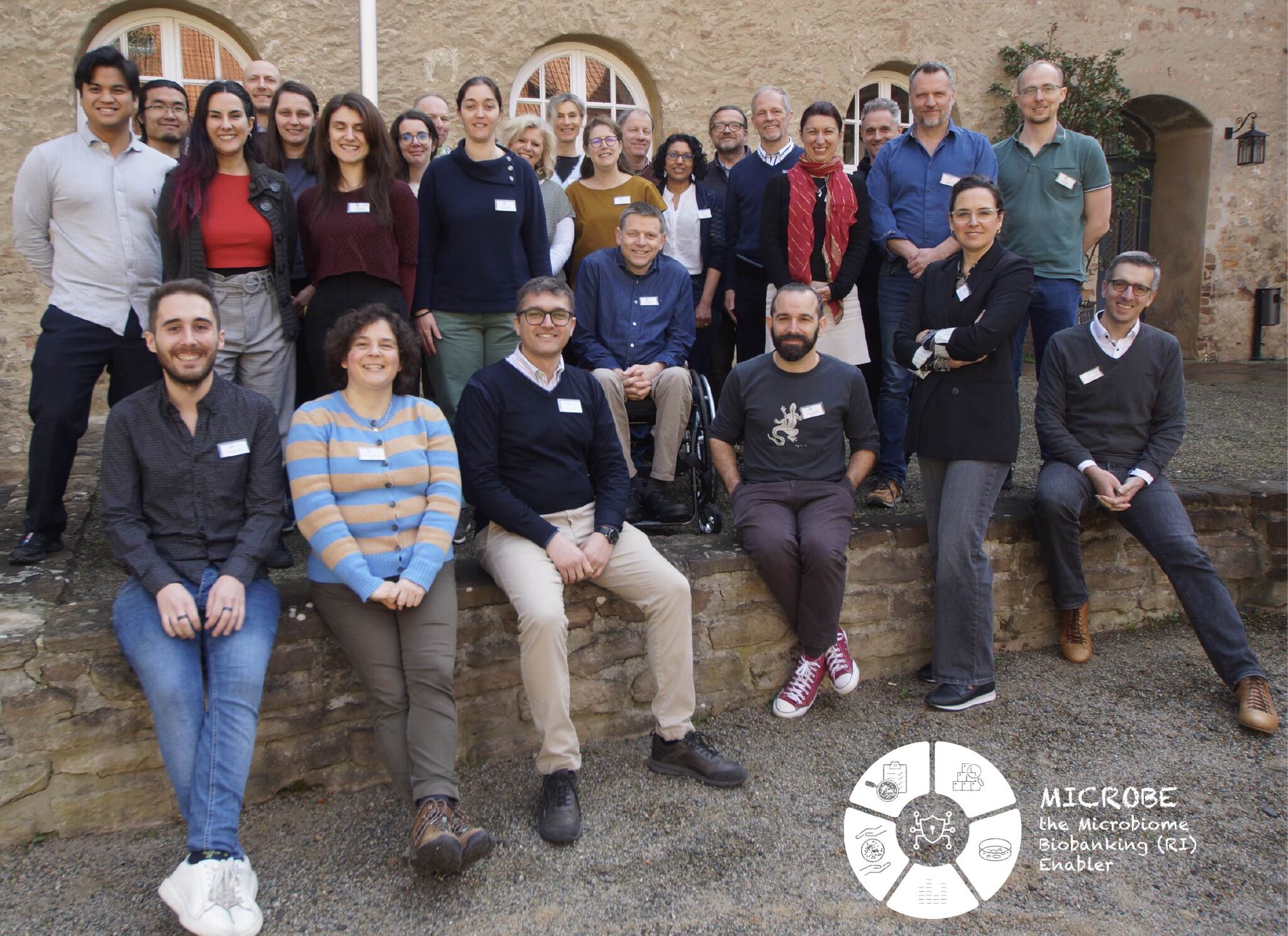Microbiome Biobanking (RI) Enabler Project (MICROBE) 2nd Annual Consortium Meeting
May 1, 2025
April 1, 2025 - April 4, 2025
Location
Wöltingerode, near Braunschweig, Germany
Meeting Report
The EU-funded MICROBE project held its second annual consortium meeting in Wöltingerode, Germany, hosted by DSMZ, one of the project partners.
MICROBE aims to establish innovative microbiome biobanking in Europe by integrating scientific expertise with research infrastructure know-how.
Dusti Gallagher, Executive Director of the Alliance and project manager of the U.S. Culture Collection Network (USCCN) attended the meeting as a member of the Advisory Board. She reviewed project progress and provided strategic input.
The goals of the MICROBE project are to:
- Maximize preservation of taxonomic and functional biodiversity in selected microbiome samples
- Optimize collection and preservation protocols for targeted downstream analyses
- Isolate microbiome members from diverse domains and assemble synthetic consortia that retain or enhance original microbiome functionality
- Develop a comprehensive operational blueprint for microbiome biobanking infrastructure
The project partners shared their progress through presentations and four use cases—soil, marine, seed, and human microbiomes. Research efforts focus on:
- Evaluating preservation methods and their application to microbial communities
- Investigating soil health and microbial composition
- Assessing the survivability of DNA, RNA, and assessing viable cellular growth post long-term preservation
- Identifying microbial keystone taxa and understanding their functional importance
Findings will inform a robust operational blueprint for microbiome biobanking, which will be shared with end users and adapted to additional environments.
Matthew Ryan, Senior Research Lead at CABI and USCCN Steering Committee member, leads a work package on preservation methods. He shared that the project is critical for developing technology readiness levels (trl’s) for culture collections and is focusing on synthetic communities and microbial inoculants. He also noted that the project has seen early success, especially in soil cryopreservation, and highlighted the link with the European Bioinformatics Institute’s MGnify platform.
This project fosters collaboration between the US Culture Collection community and European partners, creating opportunities for shared advancement and the practical application of solutions to enable microbiome research.
